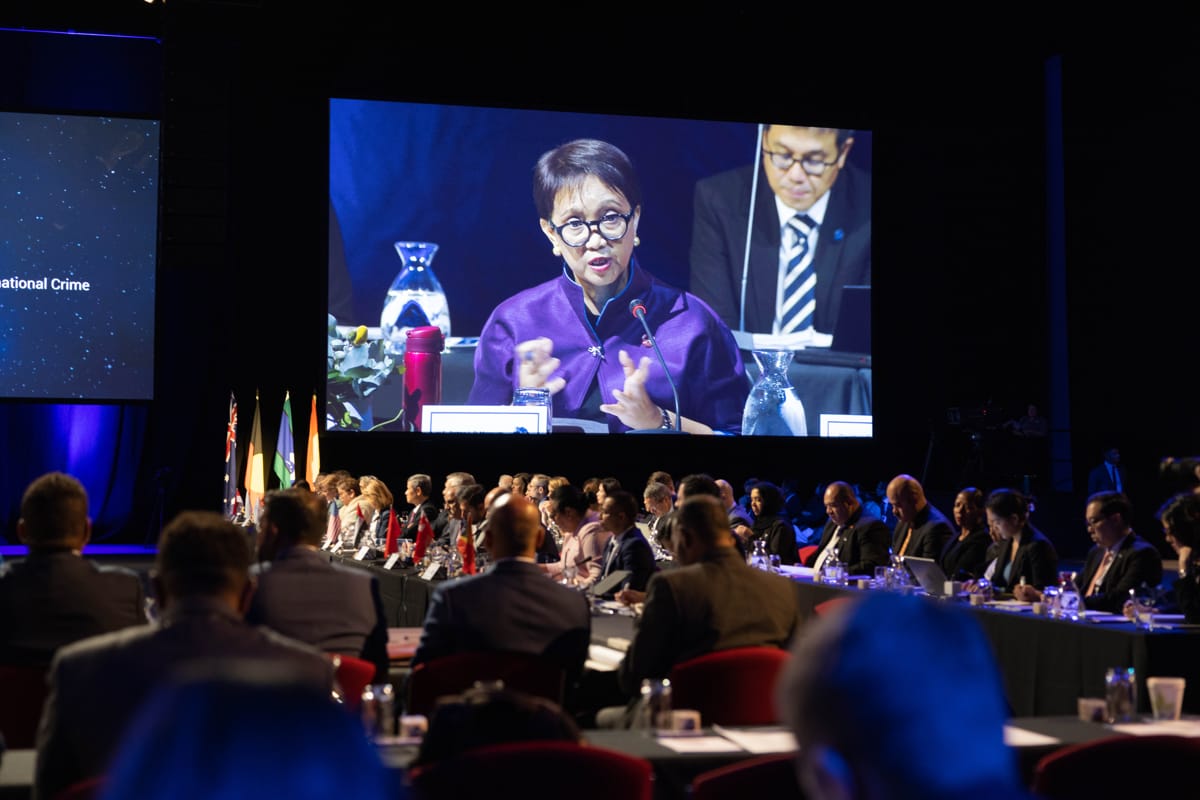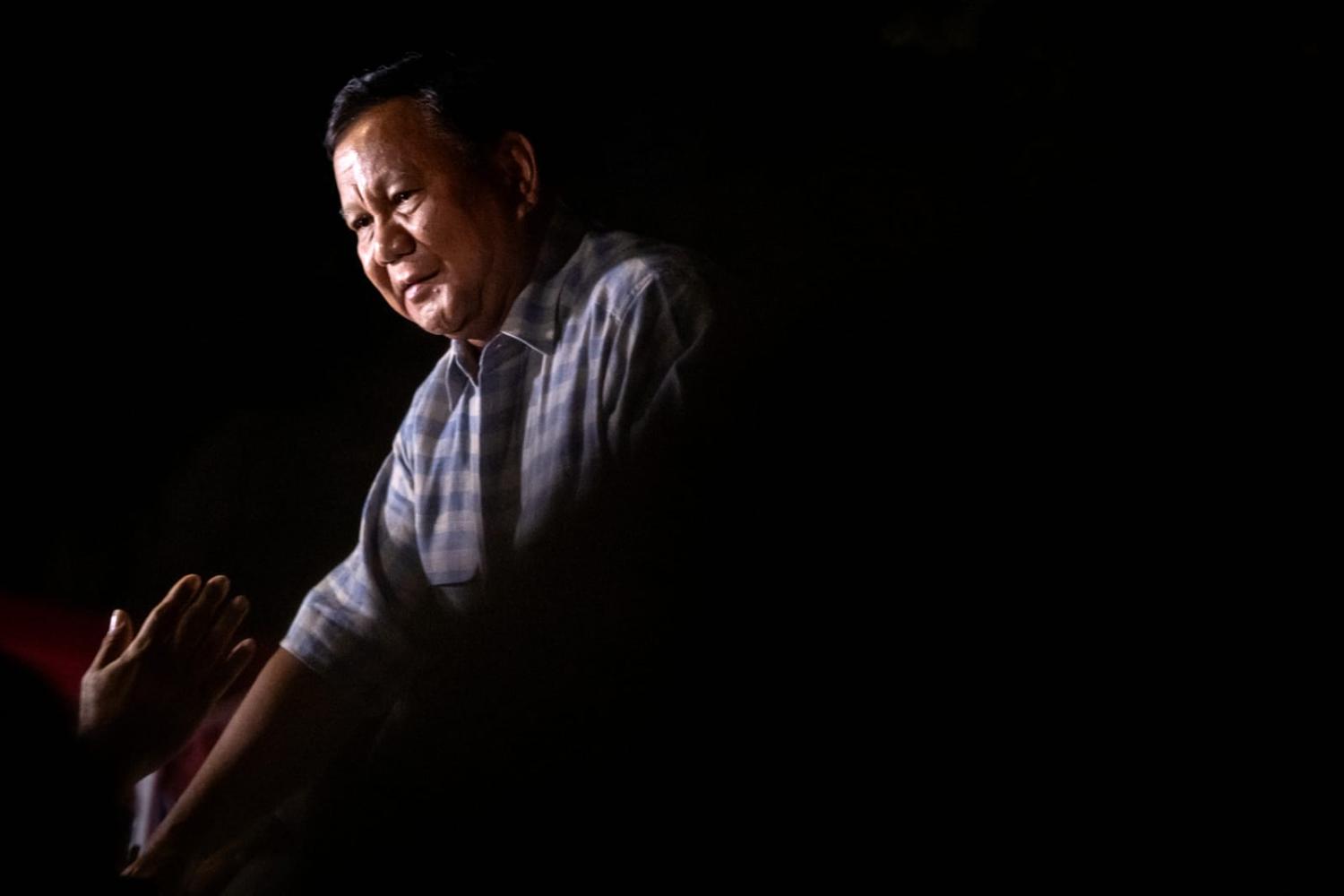Indonesia’s unofficial election result put the Prabowo Subianto–Gibran Rakabuming Raka ticket ahead sufficiently to avoid a second-round showdown in the presidential race. Yet their coalition parties did not win an outright majority in the legislative election. This means that further political manoeuvring should be expected, possibly explaining investors’ mixed reaction following the result last week. Prabowo needs to expand his coalition to ensure minimal opposition, but this may lead to an unwieldy cabinet.
Prabowo has pledged to continue President Joko (Jokowi) Widodo’s grand coalition style and big infrastructure program. Prabowo also promised an increase in defence and social assistance spending. A grand coalition usually means offering ministerial posts in exchange for party loyalty. However, his revenue strategy remains unclear, so financing these programs will likely require more public debt.
A potential loosening of public debt discipline prompted investor concern, given that Indonesia has been lauded for its prudent fiscal management under the current Finance Minister Sri Mulyani Indrawati. Her expected departure intensifies these concerns and presents the first major challenge to Prabowo’s bid for continuity.
In the final days of campaigning, speculation abounded over possible ministerial resignations due to their dissatisfaction over Jokowi’s showing partiality towards his son and Prabowo. Sri Mulyani was among those rumoured to be a potential departure, along with the Public Works and Housing Minister Basuki Hadimuljono and Foreign Affairs Minister Retno Marsudi. These three long-serving, non-partisan ministers are well regarded by the public and survived repeated cabinet reshuffles under Jokowi.
Sri Mulyani served under two presidents and won international accolades for steering Indonesia through multiple economic crises. Basuki Hadimuljono has been around since Jokowi’s first term and is the key figure in infrastructure delivery, especially the massive effort to construct a new national capital. Retno Marsudi was also enlisted in 2014 and has since proven to be a skilful diplomat able to prevent a fraying G20 summit amid heightened tensions in Europe.
But Prabowo has unwittingly alienated Sri Mulyani and Retno Marsudi in his time as Defence Minister. His impromptu remarks on the Russia–Ukraine war during a speech at the 2023 Shangri-La Dialogue drew such international ire that the parliament demanded an explanation from Retno Marsudi. Later, when quizzed about the poor performance of the Defence Department during a televised debate, Prabowo shifted the blame to Sri Mulyani for rejecting many defence spending proposals. These may be gaffes only during the heat of a campaign, but they certainly diminish the chance of the two ministers extending their support to Prabowo.

Rumours of Sri Mulyani’s potential resignation triggered a major sell-off of Indonesian government bonds by foreign investors. Flagging investment interest bodes ill for the new capital project, which, even without these controversies, has struggled to attract private interest. The exit of Basuki Hadimuljono would have cast more doubt on the project’s continuity.
The jitters have calmed somewhat, with all these ministers so far staying on. But there is a general assumption that they will not continue beyond October 2024 when Jokowi’s term in office concludes. Prabowo would have to choose replacement ministers very carefully to assuage international investors’ concerns and carry the continuity message.
While continuity in the new capital project hinges on restoring investors’ trust, continuity in foreign policy may translate to a stronger inward turn. Jokowi gave Retno Marsudi a relatively free rein in shaping Indonesia’s diplomatic engagements. Indonesia’s active engagement in various international forums in the past decade was more a reflection of its foreign minister’s zeal than its president’s ambition. Consequently, there is less of a guide.
Prabowo shows more ambition in the foreign relations space, but his penchant for conflating foreign policy with defence policy may mean a “less talk, more action” approach. Prabowo repeatedly put his defence minister hat on when quizzed about foreign policy during the candidates’ debate. While his opponents spoke about cultural diplomacy, leveraging the diplomatic network, or revitalising ASEAN, Prabowo emphasised the need to gain respect by having a powerful military. For him, the South China Sea issue is a matter of improving military capabilities. Prabowo’s style of diplomacy relies on hard, instead of soft power.
While he may have traded his strongman image for an affable grandpa to appeal to domestic voters, his tough rhetoric on foreign influence continues. Being tough on outsiders serves his patriotic image well, so one can expect a power-based approach to international relations. The new foreign minister may be given the job of projecting an image of a strong Indonesia, one ready to defend its sovereignty rather than a team player who will abide by a set of rules. Any bilateral and multilateral engagements would be evaluated on their domestic benefits rather than their international appeal. Being seen as a responsible global citizen is less important than being seen as a strong country.
Prabowo has proven himself to be a smart political operator by successfully managing to embody both transformation and continuity. Nevertheless, his pursuit of continuity will be contingent on his cabinet picks. Like his predecessor, he will likely use ministerial posts to entice opposition parties to switch sides. But the exit of experienced ministers may make realising both his predecessor’s and his own ambitions difficult. Foreign policy will likely be subordinated to defence policy in the absence of a strong diplomat. After winning the hearts of Indonesian voters, it is now time for Prabowo to win the trust of the international community.

